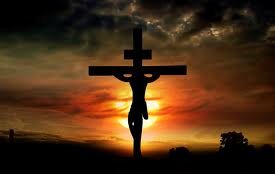Behold our shield, O God;
look on the face of your anointed! – Psalm 84:9John 1:14 And the Word became flesh and dwelt among us, and we have seen his glory, glory as of the only Son from the Father, full of grace and truth.
15 (John bore witness about him, and cried out, “This was he of whom I said, ‘He who comes after me ranks before me, because he was before me.’”)
16 For from his fullness we have all received, grace upon grace. 17 For the law was given through Moses; grace and truth came through Jesus Christ. 18 No one has ever seen God; the only God, who is at the Father’s side, he has made him known.
Speak: and your tongue does witness the word of your soul.
I have a ‘word’ for you: “logos.”
John uses Logos for the Person of Jesus as God’s Very Word spoken in the Holy Flesh of Christ Jesus.
In the beginning was the Word, and the Word was with God, and the Word was God.
He was in the beginning with God.
Jesus IS the ‘I AM‘ in the flesh!
Exodus 3:13-14 Then Moses said to God, “If I come to the people of Israel and say to them, ‘The God of your fathers has sent me to you,’ and they ask me, ‘What is his name?’ what shall I say to them?” God said to Moses, “I AM WHO I AM.”And he said, “Say this to the people of Israel, ‘I AM has sent me to you.’”
John’s Gospel preaches that God the Father sent God the Son to the people of Israel (and to gentiles of the nations as well). When they ask, “What is his name?” the reply is that of Jesus.
John 8:58 Jesus said to them, “Truly, truly, I say to you, before Abraham was, I am.”
The Word became flesh and dwelt among us.
Hebrews 4:12 For the word of God is living and active, sharper than any two-edged sword, piercing to the division of soul and of spirit, of joints and of marrow, and discerning the thoughts and intentions of the heart.
The Revelation of Jesus Christ to John:
… His eyes were like a flame of fire, 15 his feet were like burnished bronze, refined in a furnace, and his voice was like the roar of many waters.
16 In his right hand he held seven stars, from his mouth came a sharp two-edged sword, and his face was like the sun shining in full strength.
17 When I saw him, I fell at his feet as though dead.
But he laid his right hand on me, saying,
“Fear not, I am the first and the last, 18 and the living one.
I died, and behold I am alive forevermore, and I have the keys of Death and Hades.


